What sort of impact does Telehealth have on patient-centered care? Is Telemedicine here to stay? These questions are oft-debated in our industry. Most leaders believe that developing and hosting meaningful telemedicine services will be critical to the future success of healthcare.
HealthTech Magazine does a fantastic job explaining the potential benefits of telehealth in a recent Fact vs. Fallacy examination of the technology. Simply put, as outlined by Kyle Faget and Sunny J. Levine, telehealth has the potential to:
- Expand a provider’s geographic footprint
- Save time
- Dramatically reduce barriers to care
Those are not the only three benefits of telehealth, yet definitely representative of the main reasons why healthcare providers see the immediate value telehealth can bring for patient-centered care in our never-ending quest to improve outcomes for patients everywhere. Admittedly there are still many complex legal and regulatory hurdles to cross relative to the framework of telehealth, as there often is with any disruptive technology. Laws currently vary by state and commercial insurers can deny coverage or offer only partial reimbursement for such claims.
Yet many providers remain intrigued at the prospect of offering telehealth services due to the belief that the benefits of telemedicine for patients far outweigh most of the current challenges the healthcare industry faces. Health Tech Magazine provides a digestible glimpse at what’s changing in the field in their recent article: Fact or Fallacy: Is Telehealth Here to Stay?
The topic of telehealth was most certainly front and center at the 74th Annual Workers’ Compensation Educational Conference in Orlando, Florida with roughly 7 million new patients having utilized telehealth to date – and an expected growth of 15 percent by 2020. One such session, as part of the National Trends in Workers’ Compensation Track, was Telehealth – Managing Pain Through The Power Of Technology which reviewed how to look at the physical and biopsychosocial components of pain, learn how to engage injured patients to take an active role in recovery, and discuss how to achieve long-term success and successful return to life and return to the workplace.
Although this particular session focused on telemedicine in the context of the injured worker, the general discussion and lessons learned can be applied to the important role all virtual pain programs can have in our lives as patients or providers. Such comprehensive digital solutions can be critical in tackling the inherent challenges that exist with patients, particularly for those experiencing chronic pain. Access to care, especially in rural areas, and tensions with care teams are two of the most common challenges providers face.
Acknowledging the psychology of opt-in and motivation can improve staff/patient engagement and will act as the corner stone of your virtual pain program. According to One Call, engagement “must-haves” for a successful digital solution include:
- Solution diversity and accessibility
- Strong direction, competence and connectivity
- Ability to establish clear expectations from the onset
- Measureable impact of your initiatives
Virtual pain programs must always seek to help patients find a sense of control and choice over their long-term health to help put them in the “driver’s seat”, especially since studies show that people living with chronic pain commonly exude low level of trust and confidence in medical teams. These are all too common feelings for our patients that, as medical care providers, need to be addressed. Furthermore, nearly 70% of people with chronic pain experience depression; thus, increasing the importance of offering comprehensive treatment solutions that conquer the whole Mind. Body. Spirit.
Success of any virtual pain programs relies first and foremost on health education. As therapists, we must emphasize and encourage individuals to live meaningfully even if pain is part of one’s life, then … help patients find a sense of control, options, and choice.
This can be achieved by improving relationships built on a foundation of trust with our patients. People make changes at their own pace, and it’s no different for our patients. Telehealth can help meet patients where they are, in their environment, on neutral ground when access to care is restricted and/or limited by extenuating factors that are a daunting reality for many patients living with chronic pain.
For providers, implementation of such virtual programs coupled with better engagement can represent cost-effective, scalable solutions. Not only do these programs promote positive clinical outcomes, but they have the potential to significantly improve outcomes and reduce reliance on opioids for patients dealing with chronic pain.
Connect with patients. Build trust in the moment. Educate them about their health. Make it known that they don’t have to be reliant on medication and medication only to move forward living their best life.
Many breakout sessions at WCI 2019 shared valuable insights from experts and leaders whom have successfully operated in the telemedicine space. This particular session on telehealth provided unique perspectives on the future of virtual pain programs, and how these digital solutions can effectively treat the whole you – mind, body and spirit.
Telehealth – Managing Pain Through The Power Of Technology was moderated by Sean Sullivan, Sr. Director, Product Management, One Call (Jacksonville, FL), the expert panel featured Ted Borgstadt, CEO of TrestleTree is a disease management and lifestyle management leader in Fayetteville, AR and Amy V. Lukowski, PSY.D., Clinical Product Director at myStrength by Livongo, a Digital Health Management Solution for Behavioral Health and Chronic Conditions based in Denver, CO.
